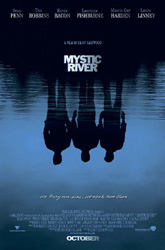 Director: Starring: Release: 24 Oct. 03
|
Radio BY: DAVID PERRY Anyone commenting on Kill Bill: Vol. 1 as being offensively sadistic need only take a look at Michael Tollinís painfully enraging Radio, one of the worst feel-good films of the year. Patch Adams, Pay It Forward, and K-Pax now have the possibility of being outdone by a schmaltzy retarded-boy-plays-with-and-trains-football-team film. This is the type of middlebrow crap that comes cascading into theatres every year about this time, feeding the sentimental tear ducts of unsuspecting audiences who, I might add, preponderates my greatest pet peeve: when people applaud in movies at something they find humorous or uplifting. Give me a break -- this isnít a Broadway show or a symphony, the people responsible for the film are not in attendance and, thus, your applause are essentially meant only for your own ears. You make me sick. And so does Radio, which left me wanting to applaud at its most inopportune point -- a character dies -- because it would have been a chance to ridicule the audience for their past improprieties (I think I would have still hated the film even if I didnít see it with a general audience that must have had sore palms by the closing credits). At least give the film credit for the one thing it succeeds in: machinating the sappiness to the point of ingratiating inspiration. Radio is like a feature film version of one of those letters to sap radio maven Delilah, turning someoneís inspirational story into something more than a minor, personal victory. No, really, you people and your radio shows and your movies make me sick. Letís start with its treatment of mental disorder. Yes, the protagonist, Robert ďRadioĒ Kennedy (Gooding, Jr.), is shown in a positive light. The people who make fun of him either get their comeuppance or see the error of their ways. But what about the way the film turns him into a sideshow, a freak for the masses to gawk at? Is it acceptable for a populace to chastise the cookie-cutter perfect football players (this film makes Remember the Titans seem like the most in-depth portrayal of racism in the south since Roots) for locking up Radio in a shed, when the audience is laughing (and applauding) the way his retardation makes him talk, makes him walk, makes him cherish the little things the rest of us look over? This makes me long for the days of Life Goes On, where Corky was as much a person as the rest of the cast, not simply a novelty to throw around like a whoopee-cushion (although that is a bit harsh since a whoopee-cushion lacks the ability to cry, a paramount need for any film that intends to sell Kleenex like it sells false liberalism). It hurts to see respectable actors -- many of whom have Oscars and Emmys on their shelves, or at least nominations -- like Cuba Gooding, Jr., Ed Harris, Alfre Woodard, S. Epatha Merkerson, and Debra Winger appearing in such dreck. Their performances are mostly disengaging (Harris comes closest to creating a credible character) because the script is so flimsy and the drama is so overbearing.
There isnít a soul to this film, regardless of what it may
try to convince the audience of. It is facile, dishonest, ugly, and
careless. Tollin and screenwriter Mike Rich know that they have an easy,
captive audience willing to buy into their deceit. I wonít, but, considering
the people at the theatre with me, Iíll applaud them for succeeding in doing
just that. |
|
| ©2003, David Perry, Cinema-Scene.com, 17 October 2003 | ||




